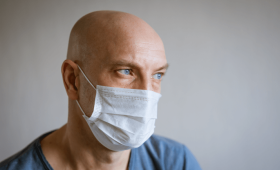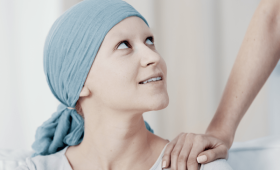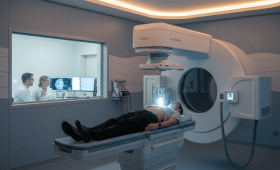Why Is Early Diagnosis of Cancer Vitally Important?
Cancer is a complex disease caused by the uncontrolled proliferation of cells in the body. Its position as the second leading cause of death in developed countries clearly demonstrates the seriousness of the disease. However, cancer is a treatable disease when diagnosed at an early stage. Early diagnosis allows the disease to be detected when it is still small and before it has spread (metastasized) to other parts of the body. This significantly increases the chances of treatment, quality of life, and survival rates. Thanks to early diagnosis, less aggressive treatment methods with fewer side effects can be applied. This allows the patient to endure less physical and psychological strain. Cancers diagnosed late are usually in an advanced stage, and their treatment processes become more complex, costly, and the outcomes more uncertain.
Advantages of Early-Stage Cancer
An early-stage cancer diagnosis brings many advantages to the treatment process. Since the disease is still in its initial stage, there is a very high chance of completely removing the tumor with surgery. This alone can be sufficient for a cure. In early stages, the need for additional treatments such as chemotherapy or radiotherapy is less. If additional treatment is needed, the duration is usually shorter, and the doses are lower. Fewer side effects allow the patient to return to their daily life more quickly. Furthermore, the risk of relapse (the recurrence of the disease) is also lower in patients diagnosed early. It should be remembered that the treatment of early-stage cancers is much more economical and effective than that of advanced-stage cancers.
What Are Cancer Screenings?
Cancer screenings are tests performed on healthy individuals without symptoms to detect cancer or pre-cancerous lesions. The most common cancer screenings are:
- Breast Cancer Screening: Annual mammography for women aged 40 and older.
- Colorectal (Bowel) Cancer Screening: Colonoscopy or fecal occult blood test every 10 years starting from age 50.
- Cervical Cancer Screening: Pap Smear test for women aged 21-65 and HPV test.
- Prostate Cancer Screening: PSA test and digital rectal exam for men aged 50 and older.
- Lung Cancer Screening: Low-dose CT (computed tomography) especially for heavy smokers. These screenings do not reduce the risk of cancer but increase the chance of treatment by catching the disease at the earliest stage.
Who Should Get Cancer Screenings?
Cancer screening is aimed at populations at high risk of developing cancer, rather than patients who already show symptoms. Risk factors include age, gender, genetic predisposition, family history, and lifestyle habits. Generally, everyone over a certain age should be included in their doctor’s recommended screening program. For example, breast cancer and cervical cancer screenings for women and prostate cancer screenings for men are routinely recommended. It is of critical importance for individuals with a family history of cancer to start screenings at an earlier age and to evaluate their risks with their doctor.
Screening Guide by Age and Gender
Cancer screenings are personalized according to the person’s age and gender.
- Women:
- Breast Cancer: Annual mammography from age 40 onwards. It may be started earlier if there is a family history.
- Cervical Cancer: Pap Smear test from age 21 onwards, and a combination of Pap Smear and HPV tests after age 30.
- Men:
- Prostate Cancer: Annual PSA test and rectal exam after age 50. It may be started from age 45 if there is a family history of prostate cancer.
- Both Genders:
- Colorectal Cancer: Colonoscopy or fecal occult blood test from age 50 onwards. Those with a family history of bowel cancer should start earlier. While this guide provides a general framework, a personalized plan should be discussed with a doctor, as every individual’s health status is different.
Contents of Cancer Check-Up Packages
A comprehensive cancer check-up package includes not only simple blood tests but also detailed imaging and risk assessment tests. Typical contents of a package may include:
- Blood and Urine Tests: Complete blood count, kidney, and liver function tests to evaluate general health status. Some packages may also include tumor marker tests.
- Imaging Methods: Mammography, abdominal ultrasound, chest X-ray, and, depending on the situation, lung tomography or MRI imaging.
- Endoscopic Methods: Examination of internal organs such as colonoscopy or gastroscopy.
- Physical Examination and Doctor Consultation: A detailed examination and risk assessment by a specialist oncologist or internal medicine specialist. During this consultation, the patient’s complaints, family history, and lifestyle habits are examined in detail.
The Difference Between a General Check-Up and a Cancer Check-Up
A general check-up includes routine tests to check a person’s overall health status. These tests evaluate blood pressure, cholesterol, blood sugar, and organ functions. However, a general check-up does not provide an in-depth screening specifically for cancer. A cancer check-up, on the other hand, is a more specific package that focuses on oncological screenings and tests targeting specific types of cancer. While blood tests in a general check-up may indicate some values that suggest a cancer risk, a cancer check-up includes imaging and tests aimed directly at the search for cancer. Therefore, it is recommended that individuals who want to comprehensively assess their cancer risk choose a specially designed cancer check-up package.
Health Tourism and Cancer Treatment in Turkey
Turkey has rapidly become a rising destination in health tourism in recent years. It stands out with its geographical location and high-standard healthcare infrastructure. Turkey, offering world-class services in cancer treatment and check-up, provides quality treatment opportunities to foreign patients at affordable prices. Patients, especially from Europe and the Middle East, prefer Turkey due to the technological equipment of Turkish hospitals, experienced medical staff, and competitive prices. Health tourism agencies facilitate this process by organizing all travel, accommodation, and treatment procedures for patients.
Modern Medical Technology in Turkey
Turkey closely follows modern medical technology with its investments in the healthcare sector. The latest technology equipment used in cancer diagnosis and treatment is widely available in Turkish hospitals. PET-CT devices, da Vinci Robotic Surgery systems, LINAC (Linear Accelerator) devices, molecular pathology laboratories, and AI-supported imaging systems are routinely used in healthcare institutions in Turkey. This technological infrastructure allows for a faster and more accurate diagnosis of cancer, while also enabling treatment processes to be more effective and with fewer side effects.
Turkey’s Specialized Hospitals for Cancer Treatment
There are many hospitals in Turkey specialized in cancer treatment and holding international accreditations. These hospitals, especially in large cities like Istanbul and Ankara, provide services with a multidisciplinary approach in oncology. In these hospitals, medical oncologists, radiation oncologists, surgical oncologists, pathologists, and radiologists come together to create personalized treatment plans for the patient. For example, cancer centers within private and university hospitals implement international standard treatment protocols and offer services with state-of-the-art devices.
The Quality of Doctors in Turkey
Turkey has a deep-rooted history in medical education and trains doctors who are recognized worldwide. Turkish doctors working in the field of cancer have gained education and experience not only domestically but also in reputable medical centers abroad. These doctors strive to provide the best service to their patients by following the latest scientific developments and treatment methods. The approach of Turkish doctors to patients is also known for being sincere and clear. This is a great source of morale, especially for patients battling a difficult disease like cancer.

Cancer Check-Up Costs in Turkey
The cost of cancer check-up packages in Turkey is quite low compared to many European countries and America. This provides a great advantage for individuals who do not have health insurance or are hesitant due to high costs. While prices vary depending on the content of the packages and the hospital’s location, they generally remain at reasonable levels. Low costs do not mean compromising on quality. Competitive prices are a result of Turkey’s general economic structure and the high demand for health tourism. This allows more people to access early diagnosis services.
Price-Performance Balance
The price-performance balance in health services in Turkey is quite high. World-class medical services are offered at low costs. Especially considering the wide range of tests and expert doctor evaluations in cancer check-up packages, the fee paid is more than worth it. Patients and their relatives are supported both medically and logistically throughout the treatment process. This makes Turkey an attractive option for both diagnosis and treatment.
Travel and Accommodation Information for Turkey
Traveling to Turkey is quite easy, especially from Europe, the Middle East, and Asia. Many airlines operate direct flights to major cities like Istanbul and Ankara. Health tourism agencies in Turkey undertake travel and accommodation arrangements for patients, making the process easier. Hospitals are usually located near large hotels and offer comfortable accommodation options for patient relatives. Turkey’s cultural richness and historical texture also create a morale-boosting environment for patients and their families during the treatment process.
Medical Oncologists and Their Importance
Medical oncologists are specialists who conduct cancer treatment with medication, such as chemotherapy, immunotherapy, and targeted therapies. They play a key role in evaluating the results of cancer check-ups and determining the treatment roadmap in case of a cancer suspicion. In case of early diagnosis, medical oncologists aim for maximum success with minimal side effects by choosing the most suitable drug treatment for the patient’s condition. Specialists working in this field in Turkey follow the latest innovations by attending international conferences and seminars to offer them to their patients.
Surgical Oncology and Radiation Oncology
In cancer treatment, surgery is one of the most important methods for removing the tumor from the body. Surgical oncologists are surgeons who specialize in this field. For early-stage cancers, surgery can often be a sufficient treatment method on its own. Radiation oncologists are specialists who apply radiation therapy to destroy cancer cells. Radiation oncology centers in Turkey are equipped with the latest technology devices and offer targeted treatment with high precision.
The Role of Pathology and Imaging Methods
The definitive diagnosis of cancer is possible with the examination of tissue samples taken in pathology laboratories. Pathologists determine the presence and type of cancer cells under a microscope, laying the foundation for a correct diagnosis. Imaging methods (MRI, CT, ultrasound, PET-CT) provide detailed information about the tumor’s size, location, and spread. Hospitals in Turkey also provide the most accurate results in this field, thanks to advanced technology devices and expert staff.
The Multidisciplinary Approach in Cancer Treatment
Modern cancer centers in Turkey adopt a multidisciplinary approach. This approach involves doctors from different specialties (medical oncologist, surgical oncologist, radiation oncologist, radiologist, pathologist) coming together to evaluate the patient’s condition and jointly determine the most suitable treatment plan. This ensures that the most effective and personalized treatment is decided for the patient. This collaboration ensures coordination at every stage of the treatment and aims for the best possible outcome for the patient.
Lifestyle and Cancer Prevention
Lifestyle factors play a crucial role in reducing cancer risk. Healthy eating, regular exercise, maintaining an ideal weight, and avoiding smoking and alcohol consumption are the main factors that reduce cancer risk. Sufficient sleep and avoiding stress also strengthen the immune system, providing protection against cancer. Cancer check-ups are an opportunity to reinforce these healthy lifestyle habits and to determine personal risk factors.
Genetic Predisposition and Risk Assessment
Some types of cancer may show a familial predisposition due to genetic factors. It is important for individuals with a family history of diseases such as breast, ovarian, or colon cancer in first-degree relatives to undergo genetic tests and risk assessments. Cancer check-up packages may include such genetic tests. This allows for a stricter follow-up program to be created according to the person’s cancer risk, and preventive measures can be taken.
What to Know Before Getting a Cancer Check-Up
Before going for a cancer check-up, you should talk to your doctor in detail about which tests will be performed. You should provide accurate information to your doctor about your previous surgeries, chronic illnesses, medications you use, and your family health history. Since some tests may require you to fast, you should find out about the necessary preparations before your appointment. Also, you should remember that a check-up is only a snapshot of your health and that a healthy lifestyle should be maintained continuously.
What Do Check-Up Results Mean?
Cancer check-up results should be evaluated by a specialist physician. The presence of abnormal values in the test results does not always mean a cancer diagnosis. These abnormal values may require additional tests and further examinations. Your doctor will share the results with you in detail and explain the steps to be taken in case of a possible suspicion. Remember that the purpose of early diagnosis is to be able to act quickly in suspicious situations.
The Importance of Family Health History
A family history of cancer is one of the most important factors in determining an individual’s cancer risk. Cancer types seen in first-degree relatives such as mother, father, sibling, or child increase a person’s risk. Therefore, it is vitally important to inform your doctor about the types of cancer and ages of your family members before the check-up. This information helps the doctor create a personalized screening plan for you.
The Psychological Effects of Cancer Check-Up
Getting a cancer check-up can cause stress and anxiety in some individuals. However, this anxiety is less destructive than the uncertainty that comes from missing the opportunity to catch a potential disease at an early stage. To cope with this anxiety, it is important to see the check-up as a health investment and to remember that the process is managed by a professional. Healthcare professionals are ready to support you with these concerns.
Conclusion: The Biggest Investment You Can Make in Yourself
A cancer check-up is the biggest investment you can make in yourself for the future. Thanks to early diagnosis, the chance of treatment increases, the treatment process becomes easier, and the quality of life is preserved. Turkey is an ideal destination to make this investment, with its modern medical infrastructure, experienced medical staff, and affordable costs. Take your health seriously and do not postpone your cancer check-up. Remember, early diagnosis saves lives.



